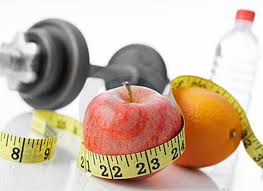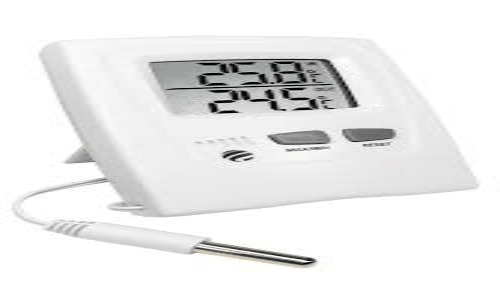Advertisements
Discover how nutrition can be the key to improving your performance during training and accelerating your muscle recovery. Preparing your body with the right nutrition before and after exercise is an essential strategy for those looking to not only improve performance, but also ensure lasting and consistent results.
What you eat before a workout can directly influence your energy levels, focus, and endurance. Specific foods have the power to maximize your ability to train hard, while also helping to prevent premature fatigue. In this article, we’ll explore the best options for an effective pre-workout supplement that will help you reach your goals more efficiently.
Advertisements
After a workout, your body needs a specific combination of nutrients to repair and strengthen your muscles. Discover which foods are essential for fast and effective muscle recovery, ensuring you’re always ready for the next challenge. We’ll uncover how proteins, carbohydrates and healthy fats play crucial roles in this regeneration process.
Additionally, we’ll discuss how proper hydration is a crucial component that often goes unnoticed but is vital both before and after exercise. Small changes to your eating routine can make a big difference in your performance and overall well-being.
Advertisements
Combining practical tips and scientific basis, this content provides valuable insights for those who want to maximize their training results. Get ready to transform your nutritional approach and reap the benefits of strategic eating, aligned with your health and performance goals. 🥦💪

The role of nutrition in physical performance
Proper nutrition before and after training is a fundamental pillar for optimizing performance and ensuring good muscle recovery. Choosing the right foods can provide the energy needed to face exercises and aid in muscle repair after physical exertion. 🍎
Energy foods before training
Carbohydrates: the primary source of energy
Carbohydrates are essential for providing the energy needed during training. They are quickly converted into glucose, the preferred fuel for muscles during physical activity. Before starting to exercise, it is recommended to consume easily digestible carbohydrates to avoid stomach discomfort.
- Fruits, such as bananas and apples
- Wholemeal bread with a little honey
- Cereal bar
These options are ideal for ensuring quick energy and keeping you going throughout your workout.
Proteins: muscle support
Incorporating a small amount of protein before training can be beneficial in preventing muscle catabolism. Consuming protein before exercise helps preserve muscle mass and can improve performance.
- Natural yogurt with fruits
- A handful of walnuts or almonds
- boiled egg
These protein options are convenient and help balance your pre-workout meal.
Post-workout nutrition for muscle recovery
Proteins: muscle repair and growth
After training, protein intake is crucial to repair and rebuild muscle fibers damaged during activity. Adequate protein intake after exercise can also improve muscle protein synthesis.
- Protein shake
- Grilled chicken
- Quinoa or lentils
Including these protein sources in your post-workout meal helps speed up recovery and promotes muscle growth.
Carbohydrates: replenishing glycogen stores
After an intense workout, muscle glycogen stores are depleted. Eating carbohydrates helps replenish these stores, ensuring that your muscles have enough energy for the next exercise session.
- Baked sweet potato
- Brown rice
- Fruits like pineapple and watermelon
These food choices provide both complex and simple carbohydrates, contributing to efficient recovery.
Hydration: the essential component
The importance of water in performance and recovery
Hydration is an often underrated but crucial element, both before and after a workout. Staying hydrated helps regulate body temperature, transport nutrients and aid muscle function.
- Drink water regularly throughout the day
- Drink isotonic drinks if your workout is very intense
- Observe the color of your urine to monitor your hydration
Keep in mind that the amount of water you need may vary depending on the weather and the intensity of your exercise.
Electrolytes: balance during physical exertion
During prolonged exercise, the body loses essential electrolytes through sweat. Drinking beverages that contain electrolytes can help maintain electrolyte balance and prevent cramps and fatigue.
- Coconut Water
- Sports drinks
- Bananas, rich in potassium
These options help replace lost electrolytes, ensuring sustainable performance and effective recovery.
Customizing your diet
Know your body and its needs
Everyone is unique, and their nutritional needs may vary depending on the type of exercise, intensity, duration, and personal goals. It’s important to observe how your body responds to different types of foods and adjust your diet accordingly.
- Record what you eat and how you feel during your workout
- Consider consulting a sports nutritionist
- Be flexible and make adjustments to your exercise routine.
This way, you can find the perfect balance for your individual needs and optimize your training results. 🏋️♀️
Variety and quality in the diet
Maintaining a varied, nutrient-rich diet is essential for overall health and physical performance. Choose whole, fresh, minimally processed foods to ensure a balanced intake of macronutrients and micronutrients.
- Incorporate a variety of colors into your meals
- Choose seasonal and local foods
- Avoid ultra-processed and sugar-rich foods
The quality of the food you eat is just as important as the quantity, and can have a significant impact on your muscle performance and recovery. 🌱
Conclusion
Boosting your workout results is an achievable goal by adopting proper eating habits before and after physical activity. To ensure energy and promote effective muscle recovery, it is essential to pay attention to what you eat. Before training, eating fast-absorbing carbohydrates, such as fruits or whole-grain breads, provides the fuel needed to improve your performance. In addition, combining these foods with a light source of protein can prevent muscle loss during exercise.
After training, the focus should be on muscle recovery and reconstruction. At this time, consuming high-quality proteins, such as chicken, fish or legumes, together with complex carbohydrates, replenishes glycogen stores and promotes muscle repair. Hydration is also essential at all stages of training, as it helps maintain electrolyte balance and metabolic efficiency.
So, by following these nutritional guidelines, you’ll not only optimize your physical performance, but you’ll also speed up recovery, reduce the risk of injury, and improve your overall health. Remember, a balanced and personalized diet is key to achieving your fitness goals. 🌟 Now it’s time to put this knowledge into practice and reap the benefits of smart nutrition.




